
Bigger isn't always better: The standout small homes of 2014
By Adam Williams, Gizmag, 4 November 2014.
By Adam Williams, Gizmag, 4 November 2014.
Constraints often fuel creativity, so it is perhaps unsurprising that despite inherent limitations in size and budget, the small living movement punches far above its weight in terms of innovation. With the end of 2014 fast approaching, Gizmag takes a look back at 14 of the best tiny homes that we’ve reported on this year.
The following projects hail from all over the world, but share a somewhat similar design elements. With a few exceptions, they are generally wooden, transportable dwellings that are relatively inexpensive and can operate off-grid. Most reflect a lifestyle that increasing numbers of people are choosing to embrace, too: living simply and inexpensively in a home with a small physical (and carbon) footprint.
Without further ado then, and in no particular order, here's our pick of our favourite tiny houses for 2014.
1. Salsa Box
Designed by Portland, Oregon-based firm Shelter Wise, the Salsa Box proves just how far a mere 9 sq m (96 sq ft) of space can go with the right design. The interior features a queen-sized bed, a flushing toilet, an electric hot water heater, a combined shower and mini-tub, and a basic kitchenette - though this requires a trade-off in usable floor space.
The Salsa Box sits on wheels and is towable with a standard trailer. It can also be outfitted to operate fully-off grid with a composting toilet, solar array, and rainwater catchment system. Models start at US$22,500.
2. OTIS
The students at Vermont's Green Mountain College Renewable Energy and Ecological Design class designed and built this tiny home - and it's a great example of what's possible for tiny house builders, even at amateur level.
The OTIS (or Optimal Traveling Independent Space) measures 6.5 sq m (70 sq ft), and can be towed by a car on a standard trailer. Inside, there's a bed, desk, composting toilet, a rudimentary sink, and a small wood-burning stove. A solar panel is affixed to the front of OTIS to provide electricity, and there's also a rainwater collection system on the roof. The total cost of OTIS (not including labour) came to around US$8,000 – US$10,000.
3. Rhino Cube
The Rhino Cube is the debut product from Boulder, Colorado-based small home firm Rhino Cubed. Based on a shipping container, the interior comprises 15 sq m (160 sq ft) of floor space, and includes a generous kitchen, bunk beds, and a small lounge area.
The firm is definitely going for an artisan feel and the Rhino Cube sports some handmade touches, like hand-drawn artwork, for example. It can operate either on or off-grid with the help of a Yeti 1,250-watt solar-powered generator, and costs US$60,000.
4. The Skit
Alas, The Skit is just a concept for now, but it's such a striking design that it warrants a mention. Based on two shipping containers arranged in a cross shape, the dwelling is designed for just one person and comprises three very snug floors measuring 4 sq m (43 sq ft), and a fourth, larger floor, measuring 12 sq m (130 sq ft).
Each level is navigated by ladder and comprises a bedroom, combined lounge and study, kitchen and dining room, a prayer room, and a bathroom with composting toilet. Off-grid tech slated for The Skit includes a rainwater catchment system, solar panel and battery array.
5. SCADpad
A team of students and professors at Georgia's Savannah College of Art and Design (SCAD) has produced a tiny house prototype that fits into a standard sized car parking space and costs around US$40,000 to produce.
The SCADpad is still early in development and comprises a simple wooden structure that's set on wheels and measures 2.5 x 4.8 m (8 x 16 ft). Inside, there's a kitchen area, hammock bed, and folding table - but no toilet. As we said, early days yet, and it's certainly not ready for full-time habitation, but the idea of a car park sized house is intriguing.
6. ESCAPE
Measuring 37 sq m (400 sq ft), ESCAPE is a small, but not too small home designed by Kelly Davis that draws inspiration from Frank Lloyd Wright. Though it's on the larger side compared to most of our selection, it still enjoys legal status as an RV thanks to it being mounted on a chassis and wheels. ESCAPE is also perhaps the most fully-featured example of our 14, and features luxuries like a dishwasher, steam shower, porch, and air-conditioning.
ESCAPE can optionally operate off-grid and such goodies include solar power and rainwater catchment system. An ESCAPE unit will set you back from US$79,000, depending on options.
7. Y:Cube
Increasing numbers of British people are finding rent too expensive, leading to an increase in homelessness. YMCA London South West and architectural firm Rogers Stirk Harbour + Partners have designed what they think could be a potential solution to this issue: a low cost housing unit called the Y:Cube.
The Y:Cube is prefabricated and built from mostly renewable materials. It measures 26 sq m (280 sq ft), and costs £30,000 (US$49,900) to construct, which will be paid for by a housing charity, registered housing provider, or local authority. It sports excellent insulation and, according to tests, can be lit and heated to 20° C (68° F) throughout the day and night for just £7 (US$11) per week.
8. Vivood
Spanish architectural collective Vivood's eponymous shelter is promoted as suitable for use as a glamping retreat, guesthouse, office, or a basic tiny home. It can be assembled in just one day and, depending on the model you choose, can also sport optional extras like solar panels, composting toilet, and rainwater collection system to enable off-grid living.
The smallest Vivood unit is on the cheaper end of the tiny house spectrum, and will set you back just €6,800 (around US$9,160), but doesn't include a kitchen at that price. Therefore, unless you're a big fan of dining out, you'd probably be better off checking out the firm's larger units.
9. Zombie Fortification Cabin
Though each of the tiny homes featured above are suitable for those wishing to downsize, few, if any, would stand up to an attack from an army of the undead. This might be an exception. Tiger Log Cabins recently unveiled its debut fortified cabin, the Zombie Fortification Cabin (ZFC-1) concept as part of a brilliantly-conceived marketing campaign.
The ZFC-1 comprises a garage, storage room, and two-story living quarters. Since it's all for fun, Tiger Log Cabins will throw in a flame thrower and water cannon at extra cost. The ZFC-1 currently priced at £69,995 (US$112,820), including a 10-year Anti-Zombie Guarantee.
10. Tsunamiball
Sticking with the post-apocalyptic theme for a moment, though in a far more serious vein, designer Chris Robinson has built a "tsunami-proof" floating small dwelling in his backyard. He was inspired to do so following the devastating tsunami that hit Japan in March, 2011.
The Tsunamiball measures 6 x 3 x 2.5 m (22 x 10 x 8.5 ft) and features a captain's window and several portholes. The interior includes bench seating with five point harnesses that fold into beds, a small electric stove, composting toilet, kitchen area, and plenty of storage. It's a real labour of love for Robinson and while not a tiny house as such, could potentially serve as a tiny floating home in a worst-case scenario.
11. Gregory Project
The Gregory Project concept by DesignDevelop seeks to turn billboards in the Republic of Slovakia into small homes for the homeless. While still on the drawing board at present, the renders depict pretty comfortable (though perhaps noisy) digs for those who are in desperate need of a roof over their heads.
DesignDevelop hopes to either connect the units to local electricity, plumbing and water facilities, or use off-grid technology like as solar panels and composting toilet - either way the costs would be covered by advertising. Far-fetched? Maybe not, as the firm is currently looking to make the idea into a reality with a Kickstarter campaign.
12. Forest Retreat
Admittedly, even for a tiny house, the Forest Retreat, by Czech firm Uhlik Architekti is pushing the reasonable definition of "house" - there's no running water, lighting, or mains electricity - so is perhaps better thought of as a charming shelter.
The Forest Retreat measures 16 sq m (172 sq ft) and features a small wood burning stove, two large shuttered windows and four large steps which provide seating, and when operated, reveal hidden storage space and a double bed.
13. Shepherd Hut
The Shepherd Hut, by Canadian company Güte can be used as a small dwelling, office space, or guest room, and sports distinctive old-fashioned looks. It's designed to withstand a Canadian winter so should be relatively hardy, and is mostly constructed from wood, with cast iron wheels and a choice of cedar or corrugated steel roof.
Inside, available furniture includes a folding hardwood desk, a kitchen unit, sofa bed, bunk beds, and a bookcase. The Shepherd Hut can also operate off-grid, and Güte offers an optional solar array and battery bank. The Shepherd Hut starts at around CAD 32,900 (US$29,146).
14. Minimod
Flexibility is a good thing when space is limited and MAPA Architects took this on board with its Minimod (or Minimal Modular) prototype small home, which sports an adaptable interior.
Minimod measures 27 sq m (290 sq ft), and comprises a lightweight steel frame that's enclosed with plywood and glass. The interior contains a bedroom, living room, kitchen dining room and a bathroom, but this layout is flexible and can be swapped around relatively easily if required. The designers will fit solar panels and a composting toilet if requested and it comes with a green roof and rainwater tank as standard The Minimod will set you back around US$27,000.
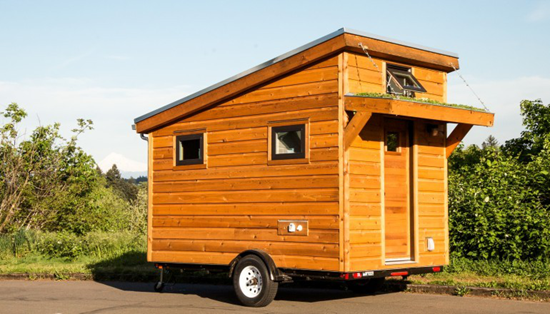
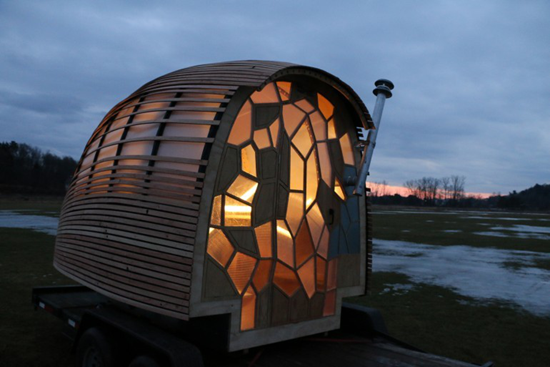

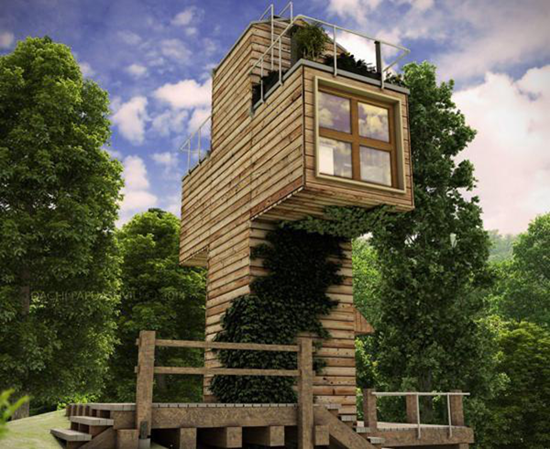
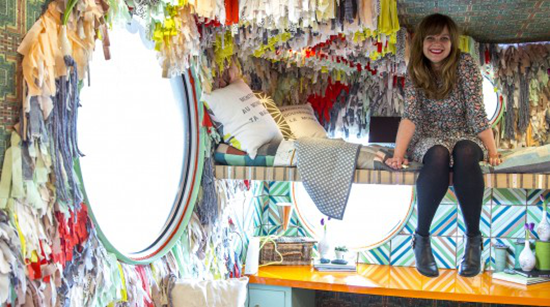
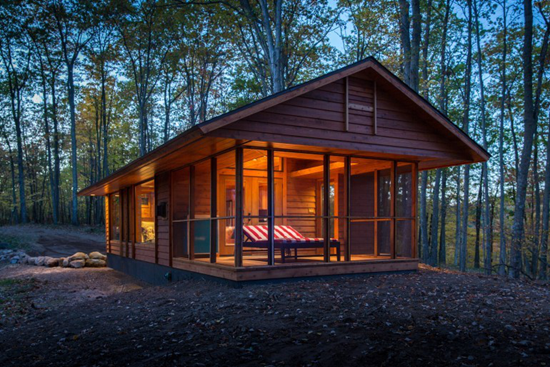


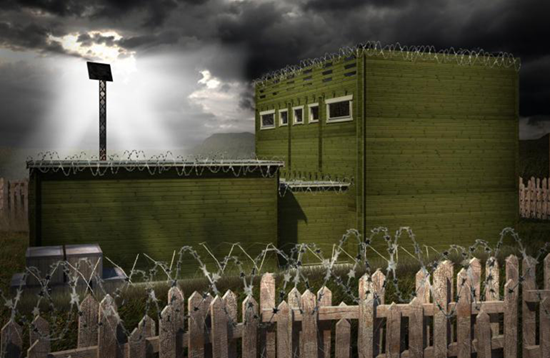
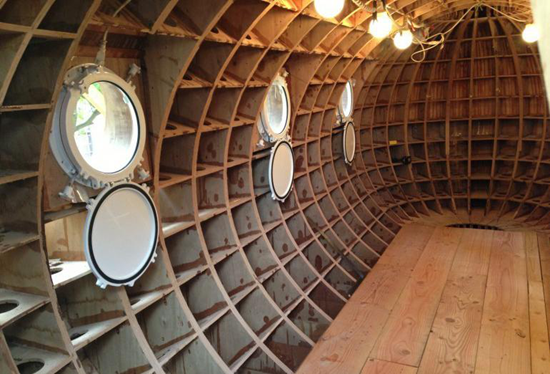
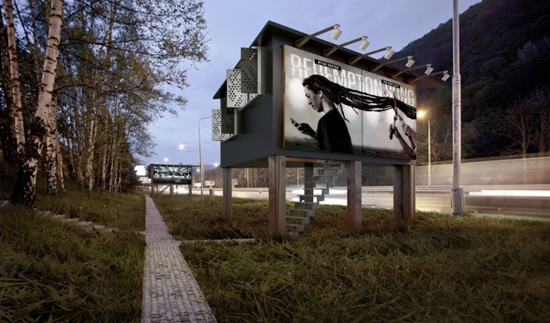

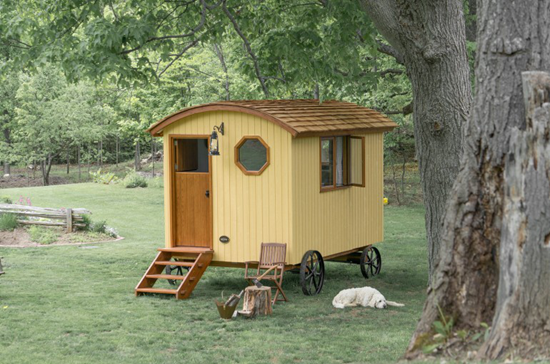
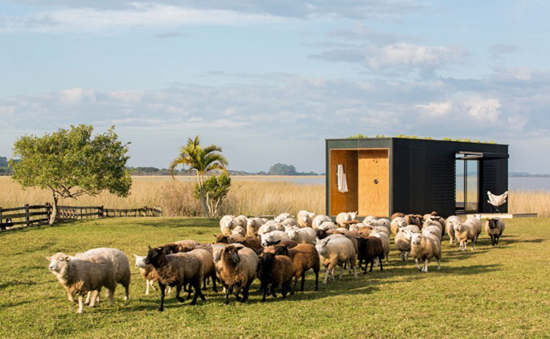
No comments:
Post a Comment
Please adhere to proper blog etiquette when posting your comments. This blog owner will exercise his absolution discretion in allowing or rejecting any comments that are deemed seditious, defamatory, libelous, racist, vulgar, insulting, and other remarks that exhibit similar characteristics. If you insist on using anonymous comments, please write your name or other IDs at the end of your message.